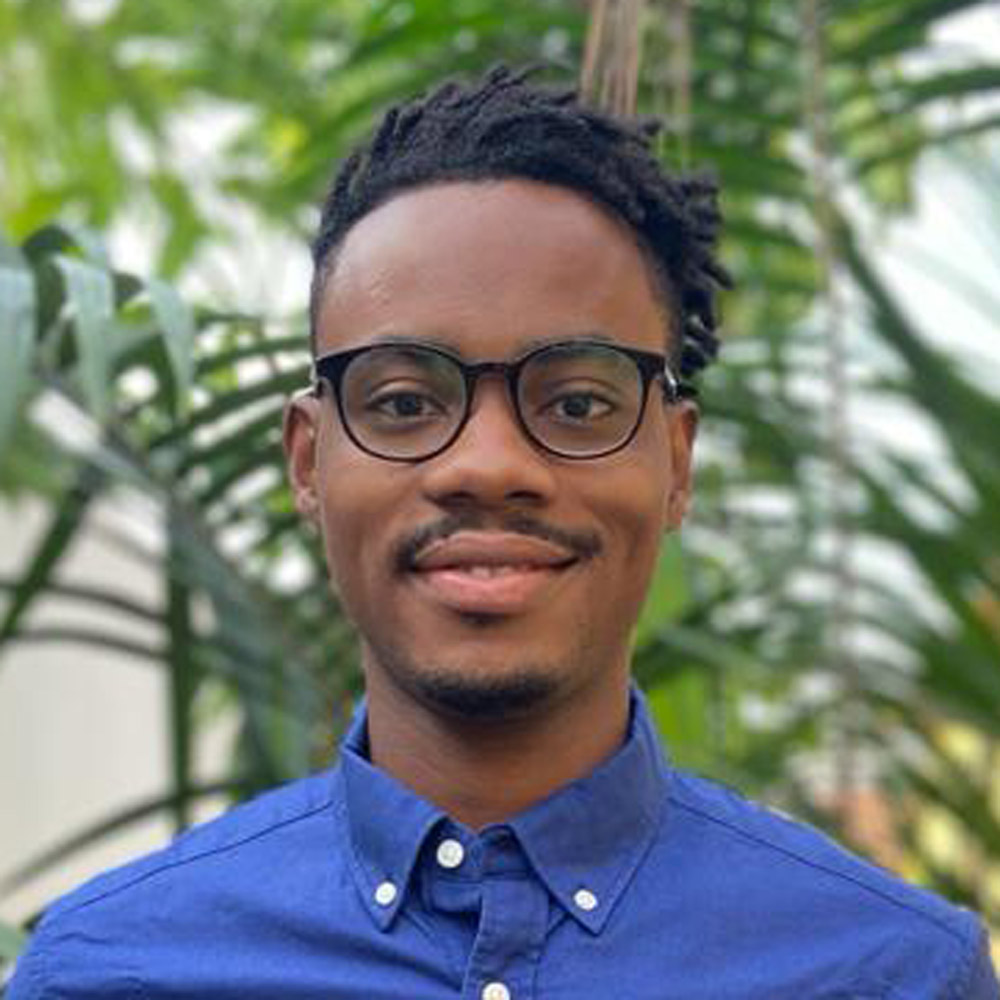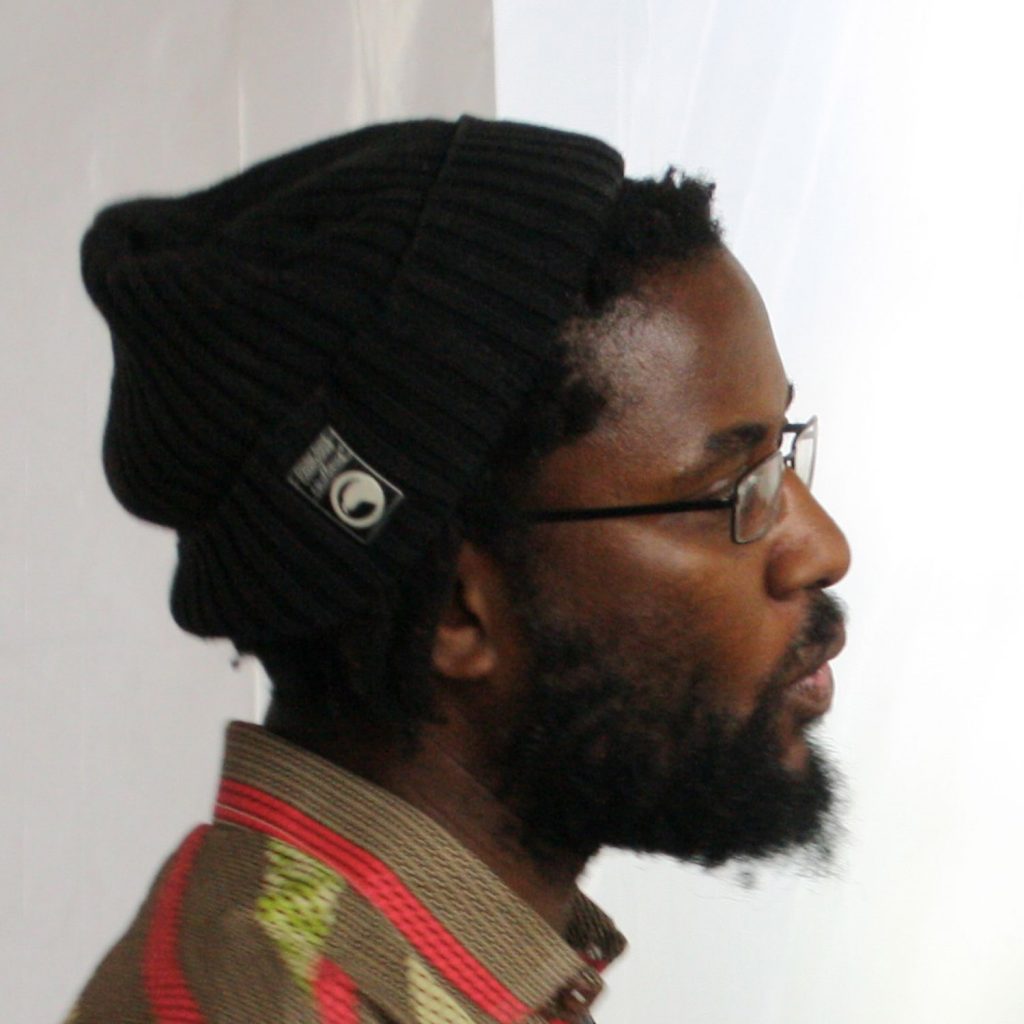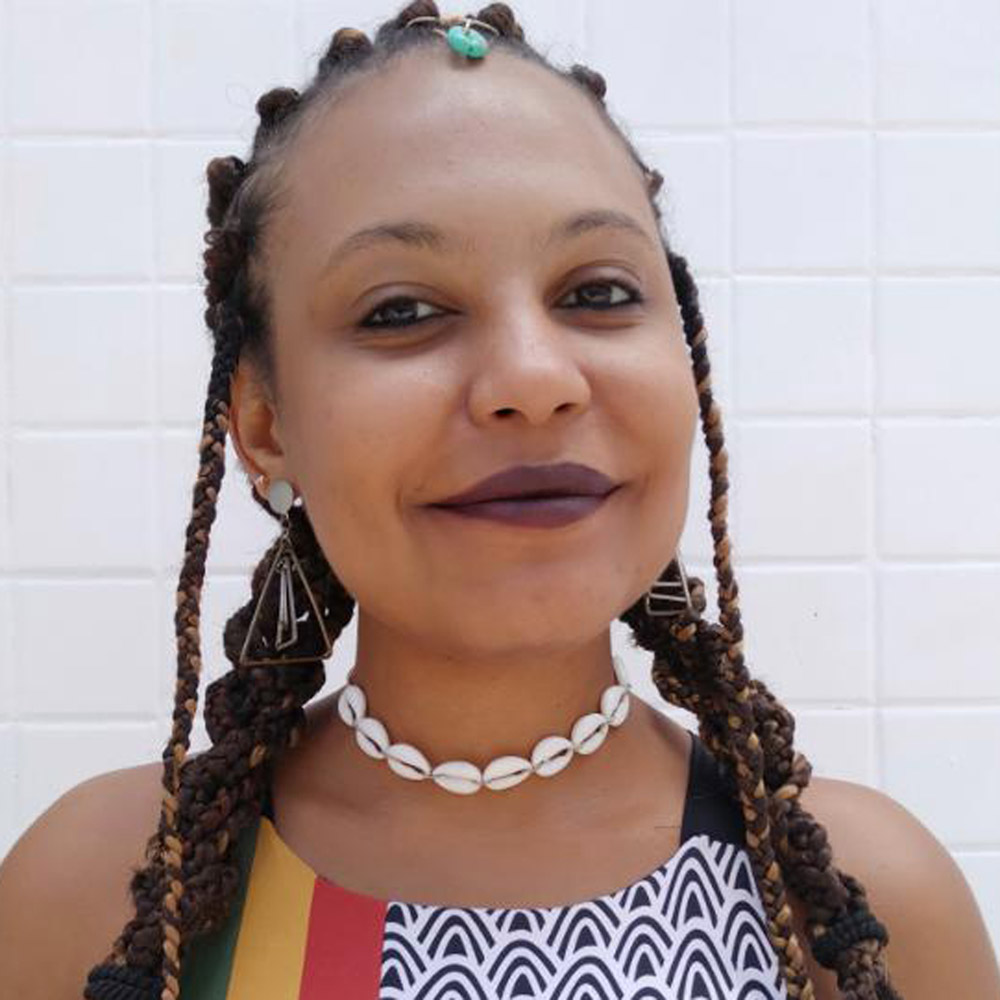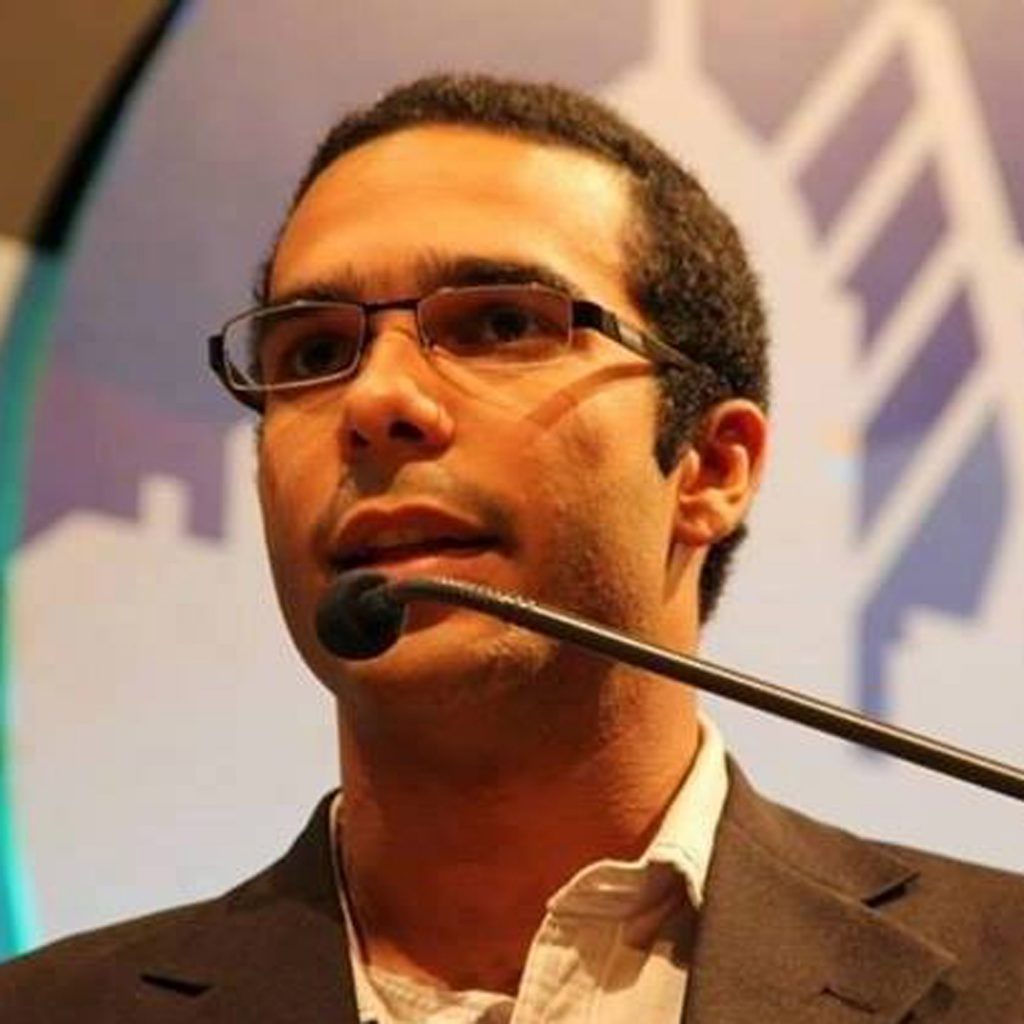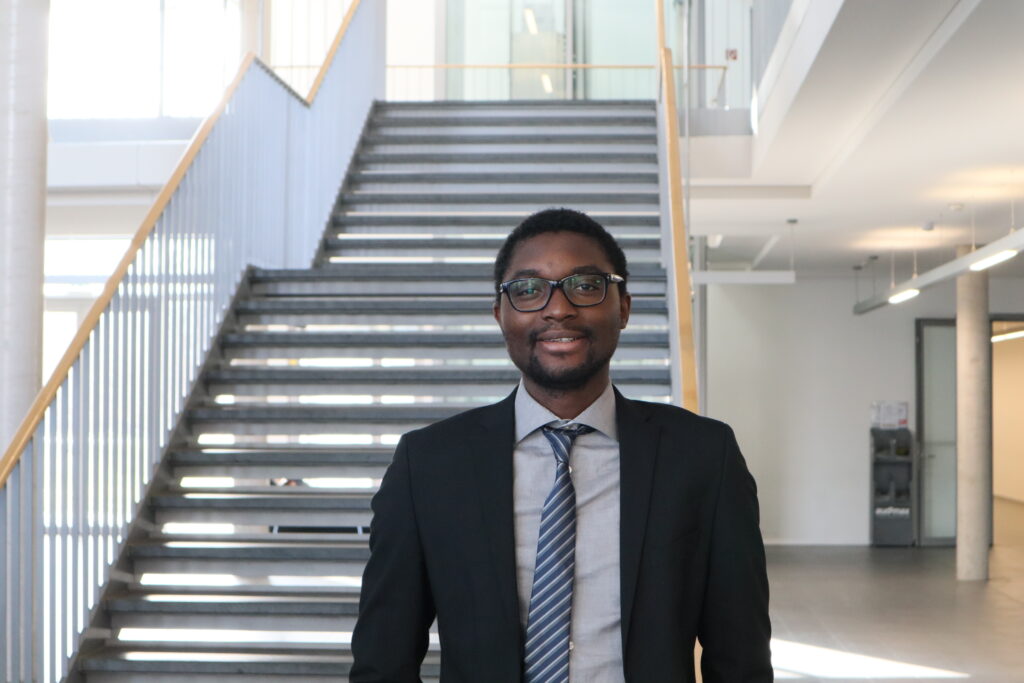WORKSHOP SLOT 1
June 3rd I 12pm (UTC+2)
The role of mobile technology in healthcare
A session to explore and rethink the healthcare system in Africa and the potential impact of mobile technology. For the past 18 months, the COVID-19 pandemic has highlighted the loopholes in our healthcare systems, therefore the need for improvements. How can mobile technology play part in it? Mobile Health a component of eHealth is defined by the World Health Organization Global Observatory for eHealth (GOe), as a medical and public health practice assisted by mobile devices such as cellular phones including smartphones, monitoring devices, personal digital assistants, and other wireless technologies. Mobile health technology has shown to improve quality of care, closing the health inequalities gap, increase access to health-related information and promote positive health behavior changes.
Several studies such mHealth technologies in a clinical trial: Opportunities and challenges by (Kakkar, et al.,2018) have shown that there is improvement in patient recruitment and engagement, patient satisfaction, increased coverage, speed and convenience of data capture with the use of mobile health technologies.
The Africa Union´s vision for the Silencing the Guns in Africa
The Africa Union envisions a peaceful, prosperous and integrated Africa in line with its Agenda 2063. In order to silence the guns on the continent, several collective efforts have been in place. The AUMR (Master Roadmap on Practical Steps to Silencing the Guns in Africa by 2020) is a strategic document, adopted in January 2017 by the AU Assembly after a Retreat in Lusaka, Zambia in November 2016 convened by the AUPSC (AU Peace and Security Council). The AUMR is composed of 5 aspects: Political, Social, Economic, Legal, and Environmental. The implementation of the initiative for the silencing the guns has been extended for another decade (2030).
Challenges in African integration and the role of African companies
The African continent has been facing different challenges; the need to have political stability and in achieving its own economic freedom has been a matter of discussion. Major actions were put in place towards the objective of the African Union Agenda 2063 and the need to implement the will of the founders of Africa. The need to understand the African Continental Free Trade Area and its main challenges in African integration is in fact what we are looking at. However, it is considered that AfCFTA is set to be one of the largest markets in the world and one of the cores for Africa’s Development, it is important to understand the key issues for Regional Integration in Africa as well as the forces and the main actors to drive the change aimed.
MAUART SPACE21 invisible BLACK BODIES IN BAYREUTH
The utopian Stammtisch (round table) for participation and co-determination as an un*learning practice is continuity and resistance which will reflect about the artist’s research on how BIPOC are legally, formally, and informally excluded from institutional spaces by not being granted rights to legally fight institutional practices of appropriation and how to make universities a more inclusive space for all. One main issue, therefore, is to negotiate legal rights for marginalized students and teachers in university spaces.
While meeting for the Stammtisch we will revisit the MAUART exhibition developed from 2018 on. The exhibition and the discussions will critique and question power dynamics in institutional spaces. This critique is based on personal experiences made in different institutional academic spaces while being an artist. Institutional spaces often cultivate a culture of power, fear, and oppression. These exclusionary mechanisms are especially powerful and exclusionary for marginalized people in terms of intersectionality. The artist will try to open closed spaces by using the means of art. The Stammtisch will pose the following question: What can we learn from art, culture, and continuity in order to open institutional spaces for all?
WORKSHOP SLOT 2
June 3rd I 2:30 pm (UTC+2)
Decolonizing education for innovation, storytelling and impact reportage in Africa: enunciating the nuances
The hegemony of western-inspired education often constrains conversation about decolonization – which often times creates an imbalance in power relations between the so-called ‘western’ and ‘non-western’ contexts and discourse about the enormous wealth and resources of the continent. This often times leads to a situation of single story such as the outburst of health epidemics, (from polio, yellow fever, cholera, malaria, typhoid, lassa fever, ebola among others) to debt, corruption and bad leadership.
As much as these western claims are not totally untrue, the aim of this discussion is to enunciate the nuances about the continent of Africa in a frank and open discussion on innovations, concepts and solutions for the challenges of our time as it relates to Pan African Education project
Sustainable Empowerment; the pathway to Emergence in Grassroot Communities
The workshop will be focused on shedding light on how local organizations in Cameroon like Open Dreams and Local Youth Corner are driving change in the country through Sustainable Empowerment in Education and Peace Building respectively. The presentation will also introduce the audience to Design Thinking and Theory of Change framework that can be used as a tool for investigating and proposing innovative solutions to the most pressing challenges of our time. The ambitions of the session are to inspire the audience with the amazing work some local organizations in Cameroon are doing, ignite their interest in civic engagement, and to introduce the audience to some of the frameworks they could use to explore challenges within their community.
Made in Africa: how Rwanda can be a gatekeeper for technology in the Great Lakes region
27 years after the Genocide, Rwanda is considered an African model of reconstruction post-conflict, seeing as an example in different themes, like accountability, internal security, environment, etc. With the Vision 2020, the strategic policy that guided the country during 20 years, Rwanda changed a lot of work fields, thinking of a different perspective away from the social machinery of the genocide. In this context, the country has been strengthening ties with its neighbors and having a significant role in regional blocs like EAC and African Union, and international blocs like IOF and the Commonwealth. Considering ist foreign policy of expanding to have a global role in international politics, the aim of exposition is to comprehend how Rwanda can be (and act like) a gatekeeper for technology in the Great Lakes region, being part of the campaign of “Made in Rwanda” and “Made in Africa”. In this logic both Africa and Rwanda win in a perspective that Rwanda attracts partners to invest/do business in the region or in the continent, diversifying Rwandan and African relations with other countries. Also, Rwanda as an African gatekeeper helps the country decrease its external dependency, having more room for maneuver.
Everyday Racism: Recognize and Act!
What exactly does racism mean? What does it mean to experience racism? Which stereotypes do people unconsciously reproduce? Where do racist and discriminatory prejudices hide in everyday life? How am I affected by racism myself – or when do I behave in a racist manner? How can you counteract certain behaviors?
These questions and experiences that the participants bring with them from their everyday context will serve as a basis for discussion. In addition, there will be space to talk about current racist-motivated incidents. At the end we will work out possible ways of dealing with everyday racism.
WORKSHOP SLOT 3
June 4th I 9:30 am (UTC+2)
The role of young people in the fight against Infodemic and Misinformation on social media platforms
The theme of this year’s Model African Union Conference “Made in Africa. Innovations, Concepts and Solutions for the Challenges of our Time” is to be the foundation of a progressive portrait of the African continent. With rising numbers of African youth becoming Facebook and Twitter users in Africa, social media is becoming an important tool for facilitating interpersonal communication. Unfortunately, media reports suggests that infodemic and misinformation are on the rise on social media platforms. This is a cause for concern as infodemic and misinformation causes confusion, fear and panic which ultimately stagnates progress in society. Meanwhile, it should be noted that, young people between the ages of 13 and 30 constitute Africa’s heaviest users of social media.
The workshop seeks to discuss how young people can use social media responsibly to reduce the occurrence of infodemic and misinformation. It will also provide a platform to amplify responsible social media etiquette and exchange of experiences in fighting infodemic and misinformation on social media platforms.
Reflections on Economic, Social, and Military responses of the COVID-19 in Africa
Covid-19 has brought the way our societies operate to a standstill, and catalyzed profound transformation in the way our societies work. On the African continent, where Covid-19 was better managed than anywhere else, the pandemic has brought into the fore how societies leverage immense creativity and decisive actions to address healthcare calamities, present and past, as well as unearthed long-standing inequities. This workshop will give the attendees an opportunity to reflect on how their societies have changed, and bring this reflection into conversation with the research on African economic, social and military Covid-responses conducted by Dr. Ecke, Dr. Elena Rosca, senior lecturer at Ashesi University, as well as their students, who have captured African Covid responses from diverse national and methodological perspectives as part of an international research project coordinate by Connecticut College.
Innovation in a New Era of Regional Integration
Economic disruptions caused by COVID-19 have resulted in an unprecedented stagnation and in some cases collapse of international trade in 2020 (UNCTAD, 2020). The International Monetary Fund projected that, world trade volume of goods and services will contract by 10.4 percent in 2020 and grow by about 8 percent in 2021. The subdued trade volumes reflect in part, possible shifts in supply chains as firms re-shore production to reduce vulnerabilities from reliance on foreign producers. While all countries are expected to suffer large drops in exports and imports, tourism- dependent economies will experience larger declines due to restrictions of travel and consumers fear of contagion. Oil exporters have suffered a severe terms-of-trade shock with the decline in oil prices.
This session will be hinged on the 3rd Flagship project, Establishment of the African Continental Free Trade Area (AfCFTA), innovations, concepts and solutions around “Making AfCFTA Work” in the era of Covid 19 pandemic”
Youth Empowerment through skill development & Innovation
The workshop focuses on skill development of the youths in Africa to drive innovation. We will discuss what kinds of skills are required, how they are transferred and the potential impact on society. Moreover, we will discuss how innovative social enterprises require skilled employees and patient capital to develop and scale their solutions. Purpose-driven businesses or social enterprises are companies with social, environmental, or good governance goals apart from a financial return to solve local challenges. In the workshop, you will learn about new investment models (Impact Investment and blended finance) that support social enterprises with new financial products. We will discuss how practical empowerment works in Nigeria, opportunities for students to get involved, and implementation steps to ensure sustainable growth.
Engaging in sustainable development in the COVID-19 Era: a case study of Sao Tomé and Principe
The present workshop wants to challenge its participants to tackle challenges endorsed by the COVID-19 pandemic in Sao Tome and Principe (STP) through creativity and teamwork. STP is an archipelago divided into six districts and the Autonomous Region of Principe, located 350 km off the West African coast. With a fragile economy, the country is driven by agriculture, tourism and foreign investment. With the COVID-19 pandemic, STP’s economy was directly affected, especially by losses in the tourism industry. According to the World Bank, 9.5% of the country’s Gross Domestic Product has contracted, potentially causing the country’s first recession since 1990.
From the presentation of this case study, the participants will be challenged to create solutions that aim to corroborate to overcome the challenges evidenced by the pandemic in STP that hinder the sustainable development of the country. The methodology proposed for the activities will be “Design Thinking”, an iterative process in which we seek to understand the user, challenge assumptions, redefine problems and create innovative solutions, through a human-centric approach.
WORKSHOP SLOT 4
June 4th I 11:30 am (UTC+2)
Building African Women’s Self Agency Through Sex- Education
It is not uncommon to hear people whisper the word – sex- like a dirty word. The taboo and shame around that word are heightened in Africa especially amongst women as it’s viewed as an act that devalues us. This shame and stigma have perpetuated ignorance and dangerous narratives that rob women of agency around their bodies and identities. It has denied women the existence of a fundamental aspect of their being except they choose to use it to serve men. Living with these societal rules make it difficult for women to act independently or make free choices of what they do with their bodies without fear of punishment, My workshop will highlight the transformative power of comprehensive sexuality education on girls and women towards finding their self-agency and identity. It will reveal the connecting dots between becoming empowered through accurate information and making informed decisions about your life and body.
The path forward goes through unpaved roads
The African continent is home to over 1.2 billion people and has 60% of the world’s uncultivated arable land. It has many resources that can contribute to its success including a young workforce. Guilherme’s workshop titled “The path forward goes through dirt roads” explores the questions: What are the opportunities for sustainable, long term development for rural Africa? What are the roles that rural African youth can play in the continent’s future to combat climate change and ensure adaptation? Can this critical time create a moment we can seize to spring into action?
Women and STEM Career
It is well known that most women especially in Africa are not found in STEM (Science,Technology, Engineering and Mathematics) related careers and there are a lot of stereotypes on women who work in these fields and they are named as “Male dominated fields”. In 2019-2020 Gloria was part of a Youth Think Tank (YTT) Programme that is funded by MasterCard Foundation and was led by Restless Development Uganda. The Youth Think Tank is a youth-led program that brings youth from 7 African countries, Tanzania, Kenya, Uganda, Ghana, Rwanda, Malawi and Zambia who conduct research in their communities to generate high-quality evidence on youth livelihoods and lead in the research processes.
As part of the YTT team Gloria did research on “Linking women to careers of STEM” in the workshop she will be sharing findings of the research report that was conducted in 7 African countries mentioned above. From the research they interviewed young women who were working in different STEM careers and shared their experiences from their motivation, family support, challenges they went through in learning institutions, their experiences in seeking job opportunities and mentors, and how they navigated through all the challenges they went through. The session will be very interactive and you will get a chance to hear directly from some of the young women who are working in STEM fields.
Roadmap towards sustainable innovations in Africa
It is important that with the present realities we look into adaptability of ideas and business models. It has also become glaring that what worked might not work now, therefore, in designing business models we must consider its workability and adaptability to the new normal. The workshop will, therefore, focus on helping participants look for innovative and sustainable ways of building enterprises that are afro-centric and yet global in standard. The objectives of this workshops are to identify the critical challenges of the African Continent, to come up with feasible and adaptable solutions, to draw a roadmap towards a sustainable socio-economic growth andto become a reference for further discussions.


